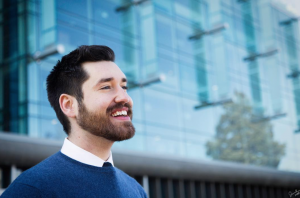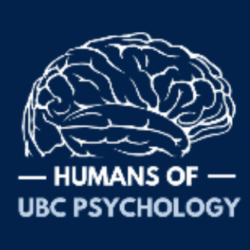
“First year was pretty tough. I left home and felt the struggles of being on my own for the first time. On top of acclimating to the new school environment, I came out of the closet. I had my first boyfriend. Lost my first boyfriend. It was a lot to handle in my first year of post-secondary. So I did see a counsellor for a number of years for anxiety-related treatment, and it was definitely a very steep learning curve. Coming from a more conservative, traditionally heteronormative Polish culture where men refuse to talk about their emotions and are expected to push them down, it was hard to talk to anyone about what was going on. But I learned that in sharing your vulnerability with someone else, you’re making all those fears that are implicit in your mind more explicit. You get to process them in a different way. And a big part of counselling is that you get to feel heard by someone else. You get to feel understood. You get to have your experience normalized, and, you get to have someone say, ‘I get it. This is a lot for you to handle.’ And that, is healing, in and of itself… I mean it doesn’t matter what kind of therapy you practice; at the end of the day, the most important factor is the relationship you develop with the client, because you’re sharing these super intimate moments and stories. That pivotal human connection is what drew me to counselling. I’m privy to all this amazing, incredible, vulnerable emotion, whether it’s sorrow, anguish, happiness, joy, hope… I thought I had a lot of this stuff pinpointed and figured out, but I’m learning as I go. I’m a pretty cognitive and logical guy; I like to look at distortions—not so much how people feel. And I realized that was a bit of a flaw in my skill set, so I started developing my affective work, where I get to talk to my clients about how they *feel*… Slow them down when they try and quickly breach through a topic that’s clearly laden with a ton of stuff that would ruin you if you talked about it. It’s been a really cool experience.”
